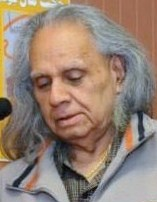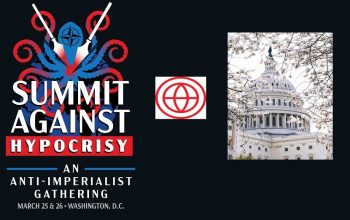by Stephen Gill
Stephen Gill, a celebrated poet and fiction writer, has been invited to be the keynote speaker by a university of Pakistan on multiculturalism and peace at their international conference. He will read also a chapter from his novel The Coexistence, which is a blueprint to live and let live. Below is a summary of his forthcoming speech:
No matter what kind of compass is used, countries are moving towards multiculturalism. This is a trend that cannot be stopped. To enjoy peace and prosperity, it is indispensable to be aware of how to live in multicultural societies. I have attempted to illustrate the beauty of peace on the rocks of live and let live.
I use the apparatus of pen to shape my vision of peace in multicultural societies. It is encouraging that some nations like Pakistan and India have inherited multiculturalism. Those nations which had one culture have adopted the policies of multiculturalism, as Canada has, for the sake of peace and prosperity. Political shepherds began to realize the value of multiculturalism and consequently made laws to welcome different ethnic groups to settle in Canada, which is my home for more than forty-five years. The Government of Canada has been promoting multiculturalism actively at every level. I have discussed multiculturalism in Canada in detail in my writings, particularly in my novel The Coexistence.
I was born in Sialkot, Pakistan. My parents moved to New Delhi when my father’s support’s firm failed because of the partition. Literary critics have rightly pointed out that my writings are rooted in 1947 that has caused the ugliness of the bloodbath on both sides of the border. I draw the water for my inspiration from the inexhaustible well of my early days in New Delhi. It is the bitterness of the water that runs in the arteries of my poetry and fiction. This bitterness is caused by intolerance in multicultural societies and intolerance leads to insanities of bloodshed and these insanities have never been able to solve problems, and they are not going to solve problems even in the future to establish peace. This is my way of thinking.
There are several definitions of peace. For personal peace, rulers abdicate their thrones and nomad in jungles. Several individuals practice detachment and meditation. For national peace, governments use tax payer’s money on war preparations. Because hard-earned currency is spent on war and its preparation, citizens are reduced to poverty, lacking educational institutions for their children, hospitals to cure their illnesses, nourishing food to ward off health problems, and peace in life. Because of illness and a lack of peace, no citizen is able to lead a meaningful life.
Like individuals, nations also need peace to enjoy life through prosperity. No foreigner would like to tour a nation that lacks peace. The best brains of the nation would settle abroad and businesses would deposit their wealth in the banks outside of their countries. These measures cause more poverty and more miseries.
There are ways to achieve peace to prevent these miseries. No matter which way is used, it boils down to follow the blueprint of live and let live. It is important to follow the blueprint of live and let live in multicultural societies, because the world has become a multicultural town. Pakistan is also multicultural. Multiculturalism is an asset. It has strong muscles and these muscles are to be used wisely to walk on the path of prosperity and peace. This is what I say in my poetry and in my fiction, and this is what I am going to elaborate in my talk at Gujrat University of Pakistan.
About the Author
Stephen Gill is the Chief Editor of www.writerslifeline.ca. Learn more about Gill and his work at http://www.stephengill.ca/.



